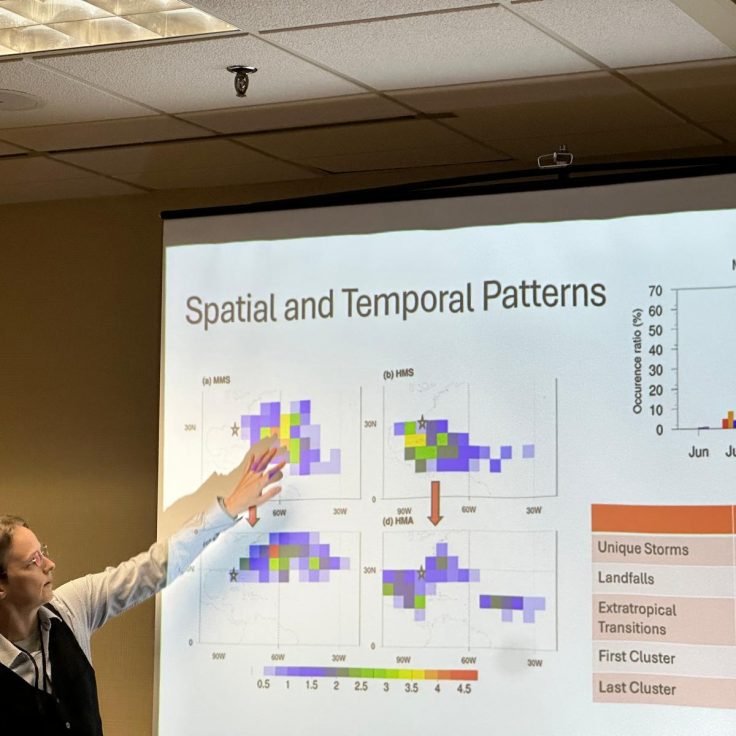New book releases from faculty and alumni
The Paradox of Violence in Venezuela: Revolution, Crime, and Policing During Chavismo (opens in new tab) By David Smilde, Verónica Zubillaga, and Rebecca Hanson | University of Pittsburgh Press
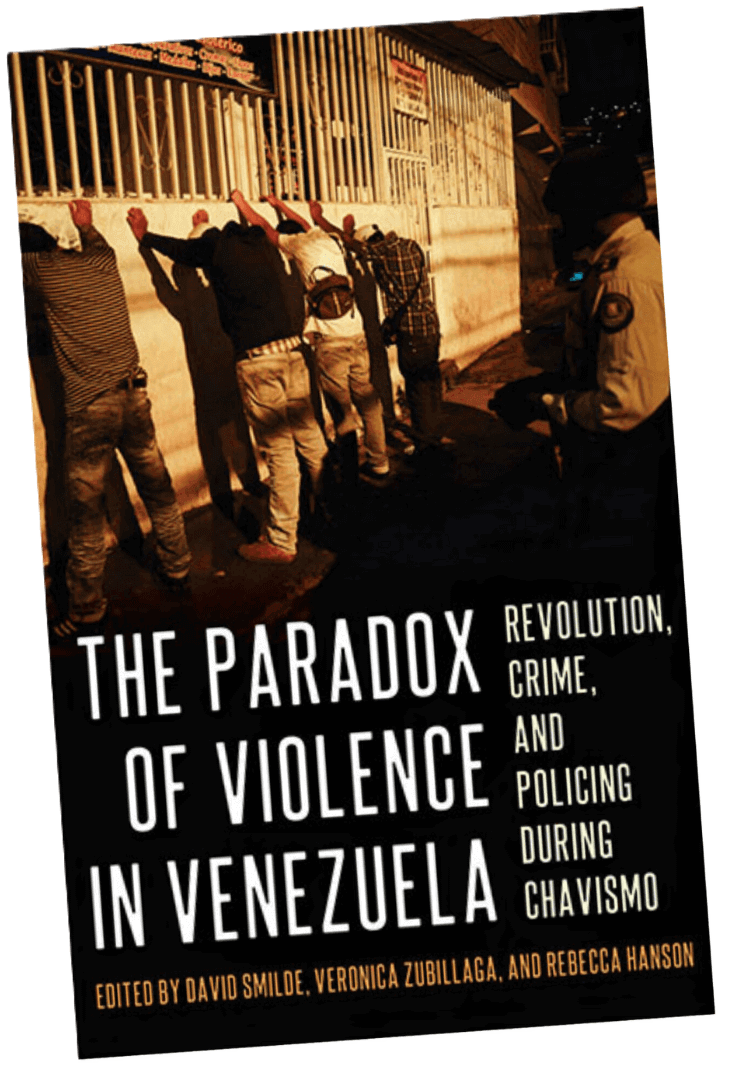
“We see the book contributing to long-standing debates in the social sciences beyond Latin America,” Hanson said. “These chapters reveal a need to reorient how we think about violence and its relationship to poverty, inequality, and the state.”
— REBECCA HANSON
Seven years ago, UF sociologist Rebecca Hanson, along with a team of co-writers and co-editors, set out to produce the first English-language book on the relationship between poverty, crime, and governance in Venezuela. Although the Venezuelan government had made great strides to reduce poverty and inequality nationwide, at the time, it was also grappling with a surge in violence that positioned the nation as one of the world’s most violent countries. This inverse relationship upended prevailing sociological theories, and Hanson and her co-editors sought to contend with this stark contradiction.
In their resulting volume, Hanson and her team focus on four pivotal factors that contributed to the surge in violence under Hugo Chávez’s administration. Increased oil revenue, revolutionary governance, a resurgence in military policing, and a failure to address concentrated disadvantage all resulted in a cycle of violence that began under Chávez and still plagues the country today.
The authors are hopeful their empirical analysis will guide public discourse and policy formulation, shifting the issue of citizen security into a realistic discussion of how security and safety can be established. They urge stakeholders to recognize that violence is a structural rather than an individual-level issue. The book contends that sustainable solutions lie in policies that foster trust, knowledge, accountability, and social cohesion at multiple levels.

NATURE AND CREATION: BIBLICAL PERSPECTIVES ON LIFE HERE ON EARTH (opens in new tab)
By Richard H. Hiers
Wipf and Stock Publishers
Book description
Professor Emeritus Richard Hiers offers an insightful academic reflection on humankind’s role in the world and our connection with God and creation. He also explores our relationship with nature and Earth’s creatures, featuring discussions on environmental ethics and the lessons we can glean from the Old and New Testaments for improving our relationship with nature. A significant focus of the book is Hiers’ exploration of the aspects of our relationship with the environment. He argues that the damage we’ve caused to the Earth is being repaid in kind, explaining that extreme weather and climate disasters have come about because of our destructive tendencies.

Indigenous and African Diaspora Religions in the Americas (opens in new tab)
Edited By Benjamin Hebblethwaite and Silke Jansen
University of Nebraska Press
Book description
Co-edited by Benjamin Hebblethwaite, an associate professor in Haitian and Francophone Studies, this volume explores the spread of African religions through the Americas and the Caribbean. Through interdisciplinary research, it breaks new ground by examining these traditions as typologically and historically related. The book narrates the history of these religions and their practitioners while sharing details about their rituals and customs. It also explains their spread through the slave trade and colonialism, highlighting how contemporary practitioners preserve these traditions as a vital heritage.
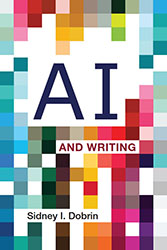
AI and Writing (opens in new tab)
By Sidney I. Dobrin
Broadview Press
Book description
Artificial intelligence platforms such as ChatGPT are sparking discussions on college campuses, raising questions about the potential positive and negative impacts on writing and creativity. Sid Dobrin, professor and chair of the English department, embraces AI and its applications in writing. He aims to impart to readers the methods and ethical considerations behind AI in writing, charting the future path of these tools. Specifically crafted as a pedagogical resource, Dobrin tailors the discussion for future writing classes, with relevance to any course in which students are required to produce texts. Its versatility extends across various academic levels, ranging from introductory courses to more advanced studies in technical writing.
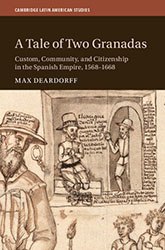
A Tale of Two Granadas: Custom, Community, and Citizenship in the Spanish Empire, 1568 – 1668 (opens in new tab)
By Max Deardorff
Cambridge University Press
Book description
In his authorial debut, Assistant Professor of History Max Deardorff examines the political upheaval of 1570s Granada, a Spanish colony in modern-day Colombia. The era saw mestizos, offspring of Indigenous mothers and Spanish fathers, fighting for acceptance in Spanish society and the right to hold positions of power in colonial government. These events marked the integration of Indigenous and mixed-heritage individuals into Spanish society. Deardorff’s book ties Colombia’s regional conflicts to broader struggles over local citizenship in the Spanish Empire.
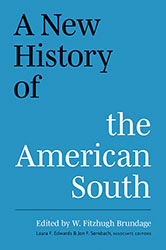
A New History of the American South (opens in new tab)
Edited by W. Fitzhugh Brundage; Laura F. Edwards and Jon Sensbach, associate editors
The University of North Carolina Press
Book description
Jon Sensbach, professor and chair of the Department of History, serves as associate editor of this collection of essays and stories from a group of distinguished historians and scholars. While many books have been written about the topic, this book aims to present the most exhaustive, yet still accessible, history of the American South. The collection delves into every aspect of Southern history, tracing its influence on contemporary Southern culture. It fearlessly addresses critical topics such as slavery, the African diaspora, Indigenous experiences, gender and wealth disparities, segregation, and race relations.

A Place in the World: Finding the Meaning of Home (opens in new tab)
By Frances Mayes
The Crown Publishing Group
Book description
This New York Times bestseller, written by English alum Frances Mayes, serves as an outlet for her passion for the concept of home. As an avid traveler, Mayes is constantly seeking a sense of home in the places she visits, and this collection of personal stories explores what home means, detailing the impacts her various residences have had on her. By weaving narratives about the places she’s visited, Mayes draws a detailed map of her journeys, showcasing how each home, temporary or not, becomes a thread influencing the trajectory toward the next, woven into the overarching theme of the book — the universal quest for a sense of home, wherever one’s travels may take them.
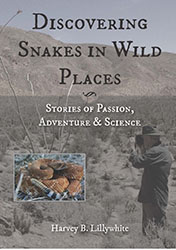
Discovering Snakes in Wild Places: Stories of Passion, Adventure & Science (opens in new tab)
By Harvey B. Lillywhite
ECO Publishing
Book description
Professor Emeritus Harvey B. Lillywhite shares captivating tales from his global travels in pursuit of snakes, blending scientific discovery with adventures in wild places. Field biologists will find fascination in his encounters with exotic species, while others can explore his early escapades as a youth in southern California, and his worldwide travels as a scientist. Lillywhite’s primary goal is to evoke wonder and excitement about snakes, inspiring readers to embark on similar adventures and to develop an interest in science through wildlife interactions. He also aims to preserve the memory of the places in the book that no longer exist and encourage the discovery of other wild venues.
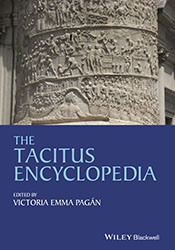
The Tacitus Encyclopedia (opens in new tab)
By Victoria Emma Pagán
Wiley-Blackwell
Book description
Thanks to Professor of Classics Victoria Pagán, we now have our first exhaustive encyclopedia on the writings of the lesser-known Roman author Tacitus. This encyclopedia is the perfect companion piece for those wanting to read the works of Tacitus, detailing every identifiable character and historical event, and explaining the culture of the time. Tacitus was not only a writer but also a historian, and often included the events of his day in his work. He lived and wrote during the zenith of the Roman Empire and is thus an important primary source. “Tacitus can refer to historical events from Homer to Hadrian and covers locations from Britain to North Africa and India,” Pagán explained.
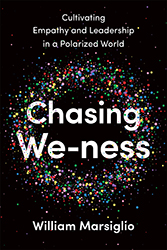
Chasing We-ness: Cultivating Empathy and Leadership in a Polarized World (opens in new tab)
By William Marsiglio
University of Toronto Press
Book description
Professor of Sociology William Marsiglio examines the concept of group belonging, dubbed “we-ness,” and offers advice on how to better ourselves by incorporating we-ness into our lives. The book’s main goal is to promote empathetic awareness and reduce social divisions through individual self-betterment. Marsiglio examines the impact of modern technologies, such as AI and social media, on our state of we-ness, while also exploring the ways that community, sports and leisure, and civic organizations benefit our state of collective belonging. The overarching goal is to encourage a mindset that emphasizes unity and shared experiences in the face of societal fragmentation.

Revelation at the Food Bank (opens in new tab)
By Merrill Joan Gerber
Sagging Meniscus Press
Book description
Merrill Joan Gerber, a UF alum and recipient of the Alumna of Outstanding Achievement Medal, provides an intimate portrayal of pivotal moments in her life and marriage in this collection of essays. From joyous recollections of marital bliss to memories of loss and familial trauma, the narratives capture a spectrum of personal experiences. Additionally, the collection delves into Gerber’s reflections on her time at UF. Through her lens, readers gain insights into the significant changes that have shaped the university over the past few decades. She also reminisces on her time spent with Andrew Lytle, a legendary writer and professor who played a pivotal role in founding UF’s Creative Writing Program.
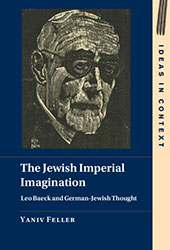
The Jewish Imperial Imagination: Leo Baeck and German-Jewish Thought (opens in new tab)
By Yaniv Feller
Cambridge University Press
Book description
Yaniv Feller, assistant professor in the Religion Department and the Bud Shorstein Center, explores the intellectual legacy of Leo Baeck, a leading Jewish figure of the 20th century and the official leader of German Jewry during the Holocaust. Feller focuses on how Jewish thought interacted with ideas of German imperialism from the late 19th century to the post-Holocaust world. Through the concept of the ‘Jewish imperial imagination,’ Feller provides new perspectives on German-Jewish history, offering a pioneering examination of Baeck’s religious thought within a political framework. Ultimately, he illuminates the philosopher’s significance and the imperial context of
the era.
Read more from the Fall/Winter 2023 issue of Ytori magazine.


